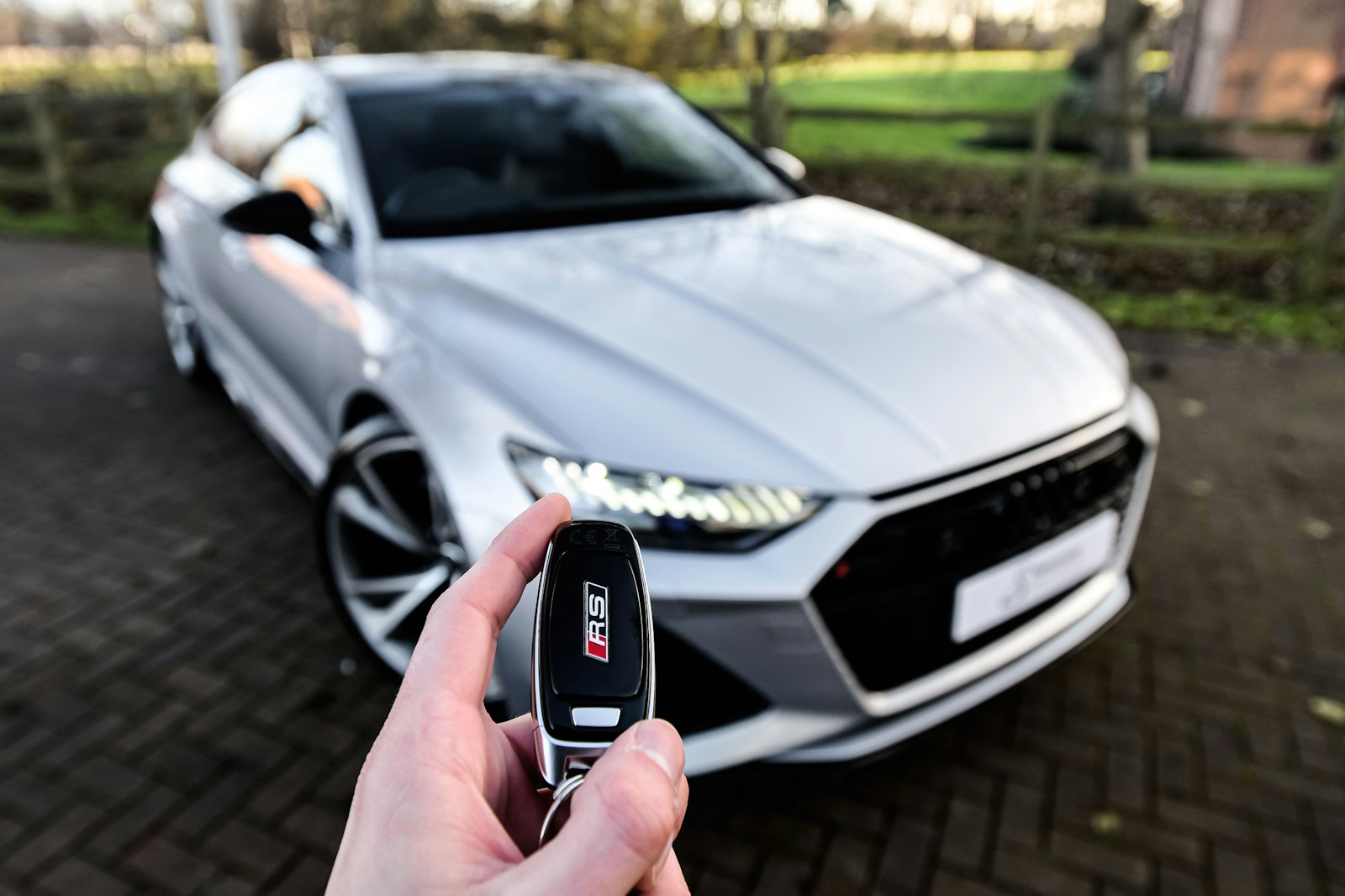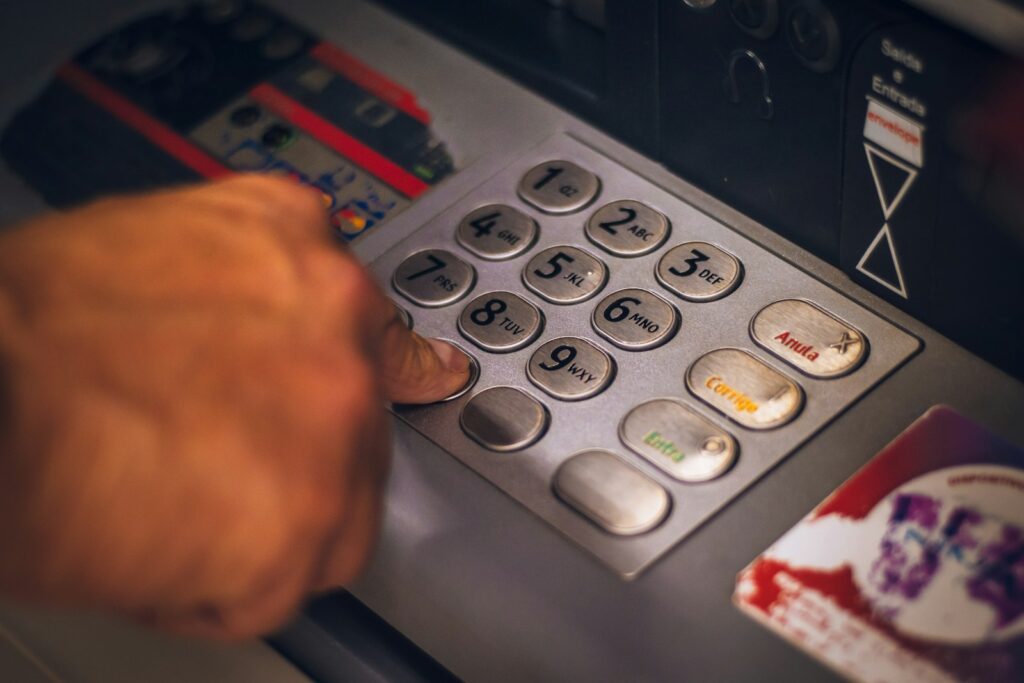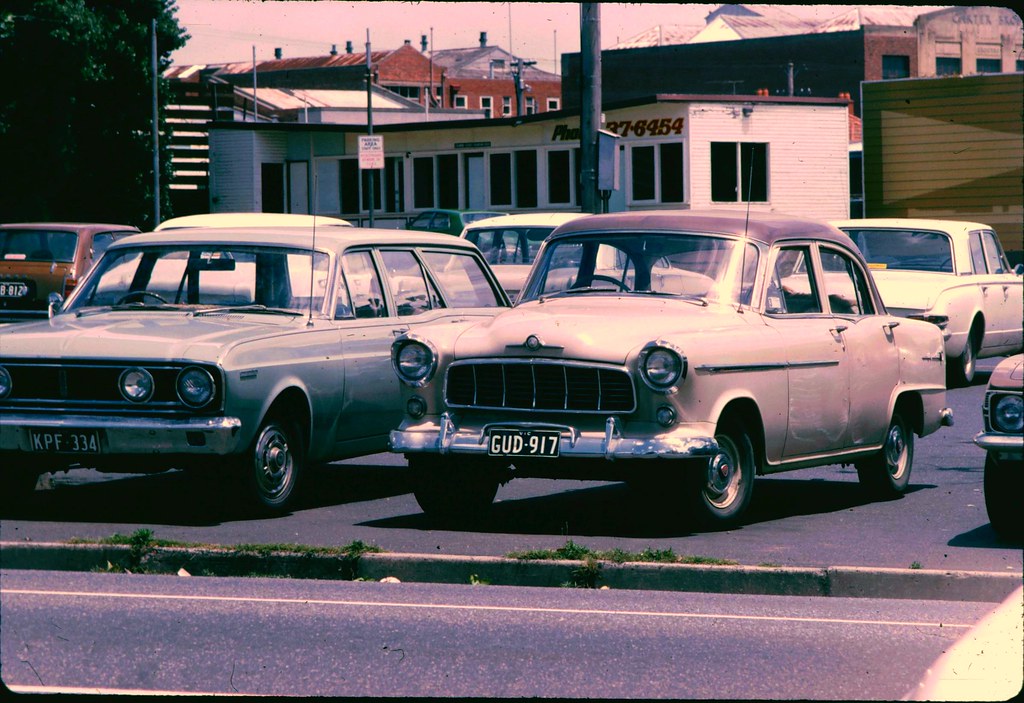
Alright, let’s get real for a moment. Walking onto a used car lot can often feel like stepping into a high-stakes game, where you’re constantly wondering if you’re about to be played. It’s not just a feeling; the Gallup 2023 Honesty and Ethics poll even found that Americans place car salespeople tied for second-last place in terms of ethical professionals, just above Members of Congress. Ouch! While we all hope for an honest deal, the reality is that many sales professionals are trained to close a deal quickly, and sometimes, that means using tactics that are less than straightforward.
But here’s the thing: knowledge is power, especially when you’re making a big purchase like a car. Understanding the common pressure tactics and outright scams can be your best defense against getting taken for a ride. We’re not talking about minor exaggerations here; we’re diving deep into the methods that can cost you thousands, leave you with a lemon, or worse, a car that isn’t even legally yours.
So, if you’re gearing up to buy a used car, consider this your ultimate guide to spotting the red flags. We’re breaking down some of the most annoying, deceptive, and flat-out fraudulent practices out there, from the classic lines designed to rush your decision to the elaborate scams that try to snatch your cash. Let’s unmask these sneaky strategies together, so you can negotiate smarter and drive away with confidence.
1. **“This price is only good today.”**This classic line is practically a sales anthem, a tactic so ingrained in the car-buying experience that it almost feels normal. But let’s be clear: its sole purpose is to inject a potent dose of false urgency into your decision-making process. The salesperson wants you to believe that if you don’t sign on the dotted line right now, you’ll miss out on an ‘unbeatable’ deal, making you feel like you’re in a race against an invisible clock.
It’s a psychological trick designed to short-circuit your rational thought process. When faced with the idea of a disappearing deal, many buyers panic, fearing regret if they walk away. This manufactured urgency pressures you into an impulsive decision, cutting short your time to shop around, compare offers, or even just take a breath and think things through without the looming threat of ‘today only.’
Here’s the reality check, straight from the source: while genuine manufacturer promotions and incentives do indeed have expiration dates, the dealership itself sets its own pricing. If a dealer is truly motivated to sell a car, they are very likely to offer that same deal, or something incredibly close, tomorrow, next week, or even next month. They’re in the business of moving inventory, not creating one-day-only miracles.
So, what’s your move when you hear this line? Simple: don’t succumb to the pressure. If you feel rushed, that’s your cue to slow down, not speed up. The best negotiating tool you have is your willingness to walk away. Take your time, do your research, and if the deal truly is exceptional, it will likely still be there, or a similar one will emerge. Trust your gut over their urgent whispers.
Read more about: 14 Essential Sales Closing Techniques to Elevate Your Deals and Master the Art of Conversion
2. **“We’re losing money on this deal.”**Ah, the classic lament of the ‘suffering’ salesperson! This lie is designed to tug at your heartstrings – or at least, your sense of fairness – and make you feel like you’re getting an absolute steal. The idea is to disarm you, making you believe that they’ve already cut the price to the bone and that any further negotiation would be, well, greedy.
This tactic expertly preys on the natural human inclination to be reasonable. By portraying themselves as sacrificing profit for your benefit, they aim to make you feel uncomfortable pushing for an even better price. It’s a subtle form of guilt-tripping, nudging you into thinking that you’ve already won the lottery and shouldn’t press your luck, effectively halting any further efforts on your part to drive down the cost.
But let’s be absolutely clear: dealerships rarely, if ever, lose money on a car sale. This isn’t charity work; it’s a meticulously calculated business. Between manufacturer rebates, holdbacks (a percentage of the invoice price that the manufacturer pays back to the dealer), various incentives, and the ever-present option of selling extended warranties, dealers have a myriad of ways to make up for any perceived ‘loss’ on the initial sticker price.
They wouldn’t stay in business if they were truly selling vehicles at a loss, would they? So, when you hear this claim, let it roll off your back. Don’t let it deter you from continuing to push for a better deal, negotiating financing terms, or asking for additional perks. Your goal is to get the best possible price for *you*, not to ensure the dealership’s maximum profit margin.

3. **“We’ve had a lot of interest in this vehicle, and it might be gone tomorrow.”**Here’s another gem from the salesperson’s playbook, tapping directly into one of our deepest psychological triggers: the fear of missing out, or FOMO. This line creates an artificial sense of competition, making you believe that a coveted car could vanish at any moment if you don’t act immediately. It’s designed to pressure you into making a hasty decision before ‘someone else’ swoops in.
By suggesting that other eager buyers are circling the same vehicle, the salesperson attempts to amplify its desirability and create a powerful incentive for you to close the deal without further deliberation. This plays on the instinct to secure a good thing before it’s too late, overriding any lingering doubts or the desire for more research or comparison shopping.
While it’s true that popular models do sell quickly, especially in a dynamic market, unless you’re after an extremely limited edition or a particularly in-demand car, there’s almost always another one available, if not at that dealership, then certainly elsewhere. A salesperson might or might not have other genuinely interested buyers, but in most cases, this is almost always an attempt to rush your decision, not an honest heads-up about imminent scarcity.
If you find yourself feeling pressured by this claim, take a step back. Leave the lot and check the dealership’s online inventory later, or even the next day. More often than not, you’ll find the car is still right there. Patience and a willingness to explore other options are your greatest allies against this common sales tactic.
4. **“We paid a lot more for your trade-in than it’s really worth.”**This particular lie is a classic numbers game, a sophisticated maneuver designed to distract you from the true cost of your new purchase. By inflating the perceived value of your trade-in vehicle, the dealer creates an illusion that you’re getting an incredibly generous offer. This seemingly good news can then be used to justify a higher price on the car you’re buying or to divert your attention from negotiating on crucial financing terms.
The trick here is to make you feel like you’re winning on one front, thus making you less inclined to fight hard on another. If you think you’re getting an above-market offer for your old car, you might be less vigilant about hidden fees, the sticker price of the new vehicle, or the interest rate on your loan. It’s a masterful misdirection that can ultimately lead you to pay more overall.
Let’s get down to brass tacks: trade-in values are fundamentally based on wholesale market prices, not what the dealer ‘paid’ for your specific vehicle or what they might tell you. Dealers acquire vehicles with the intent to resell them at a profit, whether through their lot or at auction. If a dealer offers you an exceptionally high trade-in value, be very wary, because they almost always make up for that ‘generosity’ elsewhere.
This compensation often comes in the form of adding hidden fees, quietly increasing the price of the new car, or adjusting the loan terms to their benefit. Before you even set foot on a dealership lot, do your homework. Research your trade-in’s true market value using independent tools like CarEdge Pro. Knowing what your car is *really* worth empowers you to see through this charade and ensures you don’t get shortchanged in the grander scheme of the deal.
5. **“It’s got a ‘clean’ history and no known issues.”**When buying a used car, a salesperson will naturally want to minimize any concerns you might have about its reliability or past. Uttering the comforting words, “It’s got a ‘clean’ history and no known issues,” is a common tactic to put your mind at ease and make you more inclined to proceed with the purchase without further scrutiny. It sounds reassuring, doesn’t it? Almost too reassuring.
This statement is crafted to ease your doubts and push you towards buying without conducting the essential due diligence. By painting a picture of a flawless vehicle, they aim to bypass the critical questions you should be asking and the investigations you should be performing. It’s an attempt to foster trust and expedite the sale, making you believe there’s nothing more to uncover.
However, a ‘clean’ Carfax or AutoCheck report, while a vital first step, doesn’t automatically mean a vehicle is problem-free. These reports primarily compile information from official sources like police records, insurance companies, and repair shops. What they might not capture are incidents that weren’t reported, such as minor accidents repaired out-of-pocket, hidden damage that hasn’t manifested, undisclosed mechanical issues, or even a flood history that wasn’t properly documented across state lines.
The reality is that even without reported accidents, a used car can harbor a host of hidden problems. This is precisely why it’s absolutely critical to *always* get a third-party mechanical inspection, often called a Pre-Purchase Inspection (PPI), before committing to any used car purchase. It’s a small investment upfront that can save you thousands of dollars in unexpected repairs and headaches down the road. Never take a salesperson’s word alone when it comes to the true condition of a used vehicle.

6. **Gift Card Scam**Moving beyond the direct salesperson tactics, we enter the realm of outright scams, and the gift card ploy is a hallmark of many fraudulent schemes targeting used car buyers. Imagine agreeing on a price for a seemingly great vehicle, only to be told by the ‘seller’—often through a fake toll-free number—to purchase gift cards in the amount of the sale price. Then, they ask you to turn over the prepaid gift card codes. Sounds incredibly fishy, right?
This bizarre request isn’t a quirk; it’s a deliberate and nefarious choice by scammers. The reason is painfully simple: gift cards are virtually untraceable. Once those codes are sent, the money is gone, and there’s almost no way to recover it or track the perpetrator. What legitimate seller, dealing with a significant transaction like a car sale, would prefer gift cards over verifiable cash, a check, or a secure bank transfer? None, precisely.
The Federal Trade Commission (FTC) offers a stark warning on this very issue: “If anyone tells you to pay that way, it’s a scam. Every time.” This isn’t just a rule of thumb for gift cards; it extends to other untraceable alternative currencies like Bitcoin or other digital cryptocurrencies when used in these contexts. Legitimate transactions rely on established financial platforms that offer a degree of security and fraud protection.
To safeguard yourself, the advice is crystal clear: never, under any circumstances, pay for a vehicle using gift cards or any other alternative currency that cannot be traced or offers no fraud protection. Your bank and credit card providers exist to offer safeguards against fraud. Deviating from these secure platforms opens you up to the very real risk of losing your entire payment to scammers with absolutely no recourse. Stay on the well-trodden path of secure financial transactions.
Read more about: Beyond the Jackpot: Unpacking the Worst Financial Decisions Lottery Winners Often Regrettably Make

7. **Wire Transfer Scam**Much like the gift card scam, requests for wire transfers are another glaring red flag in the arsenal of used car fraudsters. The core objective remains the same: to coax victims into submitting a hard-to-trace payment without actually having the vehicle in their possession. These scams often come dressed up with fraudulent but seemingly legitimate third-party organizations, adding a layer of deceptive credibility to the scheme.
Scammers exploit the trust people place in banking systems, leading them to believe a wire transfer is a secure method of payment. They might invent elaborate stories about why they can’t deliver the vehicle or allow you to pick it up until the wire transfer is complete. These excuses are designed to override your common sense, making you send money before you’ve inspected the car or verified the seller’s identity and legitimacy.
The most effective way to sidestep this scam, and indeed many others, is to adhere to one golden rule: do not pay for a car that you do not have in your possession. Never. Scammers will spin a web of reasons—they’re out of town, the car is in storage, they need to secure shipping, or some other convoluted tale. Don’t fall for it. You should always be able to inspect the vehicle and meet the seller in person before any money changes hands.
Furthermore, there is rarely a legitimate reason why you should be compelled to pay for a used car via wire transfer, especially from someone you don’t know and trust intimately. Doing so makes it incredibly easy for scammers to disappear with your money, making it exceedingly difficult, if not impossible, for you to track them down or recover your funds. Stick to secure, traceable payment methods once you’ve physically verified the vehicle and seller.” , “_words_section1”: “1948
Alright, we’ve navigated the treacherous waters of salesperson pressure tactics and outright payment deceptions. But hold onto your steering wheel, because the road to a great used car deal still has some shadowy turns. Now, we’re diving into the more insidious, elaborate scams designed to trick unsuspecting buyers, often involving doctored vehicle histories or completely fraudulent identities. Let’s unmask these advanced schemes and equip you with the knowledge to drive clear of them.
Read more about: 13 Meal Prep Fails That Prove Some Time Savers Just Aren’t Convenient — And How to Fix Them!

8. **Purchase Protection Plan Scam**Okay, so you’ve found a sweet ride online, and the seller seems legit, even mentioning a ‘purchase protection plan’ to give you peace of mind. Sounds like a golden ticket, right? Well, pump the brakes, because this is where some fraudsters really get clever, faking these plans to reel you in with a false sense of security. It’s a calculated move to make you drop your guard.
Legitimate platforms, like eBay Motors, do offer vehicle purchase protection plans, which are fantastic for guarding against fraud and holding sellers accountable. Scammers know this, and they’ll try to mimic these services by creating imposter phone numbers, email addresses, and even entire websites that look eerily authentic. Their goal is to make you feel secure enough to hand over your cash, thinking you’re covered when, in reality, you’re walking straight into a meticulously crafted trap.
Here’s the crucial takeaway: never, ever trust contact information for a purchase protection program provided by the seller. No matter how convincing the website looks or how professional the email seems, always do your own independent research. Go directly to the official company’s website (like eBay Motors, for instance) and find their *true* contact information. Then, reach out to them directly to verify if the seller and the specific vehicle you’re interested in are actually covered by their program. It’s a small step that can save you a massive headache and potentially thousands of dollars.
Read more about: The 12 Catastrophic Financial Missteps That Bankrupted Lottery Winners

9. **Escrow Scam**Ever heard of an escrow account? In legitimate transactions, it’s a brilliant way for buyers and sellers to ensure everyone plays fair. Funds are held by a neutral third party until all the conditions of a sale are met. It’s a trust-builder, especially when you’re dealing with someone you’ve never met face-to-face. Unfortunately, scammers have warped this clever concept into yet another trap: the fake escrow scam.
These fraudsters prey on your cautious nature. They know you’re wary of wiring money directly to an unknown seller, so they’ll ‘offer’ to use an escrow service to make you feel safe. They create a convincing, albeit fake, escrow account, often with official-looking websites and documents. You, thinking you’re being smart and protecting your investment, send your good-faith payment to this ‘third party.’ The chilling reality? There is no legitimate escrow account; your money goes straight into the scammer’s pocket, and then they vanish into thin air, leaving you car-less and cash-less.
To outsmart this elaborate scheme, stick to a simple, unwavering rule: never pay in advance, not even to a supposed escrow service, unless you have physically met the seller, thoroughly examined the car, and had it independently inspected. Especially be vigilant if you’re looking at custom, specialty, or exotic cars offered at prices that seem too good to be true, as these are prime targets for escrow fraud. Always go through the proper motions of verifying everything before any money changes hands. Your diligence is your best defense against this sophisticated deception.
Read more about: Mastering Car Title Security: 13 Essential Strategies to Safeguard Your Vehicle and Finances from Deceptive Scams

10. **Curbstoning**Alright, let’s talk about ‘curbstoning,’ a term that sounds almost innocent but hides a seriously shady practice. This isn’t just a dodgy private seller; it’s often an unlicensed dealer masquerading as one, looking to offload salvaged or severely damaged cars. They get their name from where they conduct business: open spaces like parking lots or roadsides, far from any legitimate business or residential address, making it harder to track them down.
These curbstoners are masters of disguise when it comes to cars. They’ll cosmetically ‘dress up’ vehicles to hide dangerous, disqualifying flaws—think missing airbags or shoddy frame welding that would never pass muster on the open market. The unsuspecting buyer thinks they’re getting a killer deal, only to drive away with a ticking time bomb and often, without critical paperwork like the title, leaving them in a legal and financial nightmare. This entire practice is illegal, and it’s a huge risk for any buyer.
So, how do you spot these elusive scammers? They typically advertise on sites like Craigslist or simply stick ‘for sale’ signs on parked cars, often trying to sell multiple vehicles at once. A simple online search of any listed phone number can reveal if it’s associated with numerous other car ads – a major red flag that you’re dealing with a professional, albeit unlicensed, seller. Another trick: call the number and ask about ‘the car.’ If they ask ‘which car?’ you know they’re juggling multiple sales, a tell-tale sign of a curbstoner. And here’s the kicker: they *always* demand cash, refusing checks or money orders because they want to erase any paper trail. Stay sharp, and don’t let their roadside charm fool you.
Read more about: Consumer Alert: 13 Essential Safeguards Against the Hidden Dangers of Buying a Car Sight Unseen Online

11. **Title Washing**Imagine buying what you think is a perfectly good used car, only to discover later that it was previously deemed a total loss by an insurance company after a devastating accident or flood. That’s the chilling reality of ‘title washing,’ a deceptive practice designed to hide a vehicle’s troubled past. These scammers effectively ‘cleanse’ a car’s title of any salvage brandings, which are vital warnings that a car is essentially worthless or dangerously compromised.
How do they pull off this magic trick? It’s a cross-state maneuver. They’ll transfer a salvage vehicle to a state where the original automaker’s branding isn’t recognized or recorded in the same way. When that new state issues a fresh title, the critical ‘salvage’ branding can mysteriously disappear. If it doesn’t work the first time, they might just try again in another state, relentlessly pursuing a ‘clean’ title to dupe an unsuspecting buyer. It’s a deliberate effort to conceal a vehicle’s true, often catastrophic, history, making a dangerous car appear legitimate.
But here’s your superhero cape in this scenario: scammers can wash a title, but they can’t wash computer records. Your best defense, and something you should always do anyway for any used car, is to run a VIN check. Services like Carfax are your trusty sidekicks, instantly revealing a vehicle’s true salvage status, even if the paper title looks sparkling clean. Remember, both private sellers and even some unscrupulous dealers have been caught in this scam, so vigilance is key to avoiding a dangerous and potentially worthless car. Don’t let a clean-looking title fool you; the digital record never lies.
Read more about: Unbelievable Encounters: 10 Mind-Boggling Coincidences That Rocked Film Sets

12. **Odometer Fraud**Ever rely on a car’s odometer to gauge its wear and tear, and thus, its value? You’re not alone. The odometer reading is one of the most critical indicators of a used car’s condition and lifespan. Unfortunately, it’s also a prime target for fraudsters. The National Highway Traffic Safety Administration (NHTSA) estimates a staggering 450,000 cars are sold annually with manipulated odometer readings, costing buyers a cumulative $1 billion in losses each year. That’s a lot of zeros, and a lot of unsuspecting buyers being ripped off!
Odometer fraud, whether it’s altering, resetting, or just misrepresenting the true mileage, is illegal, yet it’s shockingly common. Scammers know that a lower mileage number translates to a higher perceived value, so they’ll go to great lengths to tamper with this crucial gauge, often without the buyer ever realizing they’re purchasing a car with significantly more miles than advertised. This leaves you with a vehicle that might be on its last legs much sooner than you expected, requiring costly, unforeseen repairs that quickly erode any perceived savings.
So, how do you protect your wallet from this widespread deception? Start by scrutinizing the car’s title; the mileage stated there should perfectly match the odometer. If the mileage on the title is smudged, obscured, or just plain fishy, consider that a major red flag. Physically inspect the odometer for any signs of tampering, and during your test drive, confirm it’s actually recording miles. Crucially, always get a VIN report from a reputable service like CarFax. This digital history can expose the car’s real mileage story, revealing inconsistencies that a visual inspection might miss. If the car’s overall wear and tear seems way off for the low mileage shown, trust your gut and walk away.
Read more about: 13 Essential Red Flags: Your Step-by-Step Guide to Inspecting a Used Performance Car Like a Pro

13. **The ‘Just Needs’ Scam**You’re scrolling through online ads and stumble upon a car that looks fantastic, priced incredibly well. The description reads, ‘Perfect working condition, just needs a new alternator!’ or ‘Runs great, just needs some freon for the AC.’ Sounds like an easy fix to grab a bargain, right? Think again. This, my friends, is ‘The ‘Just Needs’ Scam,’ and it’s a masterclass in deceptive understatement that preys on your desire for a cheap win.
The alluring phrase ‘just needs’ is typically a cunning code for ‘the entire system doesn’t work, and it’s going to cost you a fortune.’ Scammers use this line to draw in hopeful buyers who think they can snag a deal by performing a seemingly minor, cheap repair. However, once you buy the car and make that quick fix, you discover the stated problem was merely the tip of a very expensive iceberg. That new freon won’t magically fix an air conditioner that truly needs a new compressor, and a fresh alternator won’t solve a deeply rooted electrical system failure, plunging you into unexpected debt.
Here’s some unfiltered common sense: if a seller could genuinely get thousands more for a vehicle by simply spending a few hundred dollars on an easy part, why on earth would they skip that step and sell it for much less? They wouldn’t. They’re trying to offload a major problem onto you, knowing you’ll bear the brunt of the true repair costs. So, when you see an ad with ‘just needs’ in the description, your best bet is to avoid these vehicles almost without exception. Your intuition is powerful here—if it sounds too easy, it’s probably a trap designed to drain your bank account with unexpected, costly repairs.

14. **Car Cloning**Now, let’s talk about a truly sophisticated and deeply unsettling scam: car cloning. This isn’t just about selling you a lemon; it’s about selling you a car that doesn’t legally belong to you, with potentially severe consequences. Car cloning involves criminals taking a stolen vehicle and giving it a completely new, fake identity by using the Vehicle Identification Number (VIN) and fraudulent documents from a legitimate, registered car of the same make, model, and year. It’s an identity theft for vehicles.
Imagine driving what you believe is your lawfully purchased car, only to have authorities confiscate it because its true identity has been discovered – a car that was reported stolen. Even worse, you could unwittingly find yourself facing criminal charges for possessing a stolen vehicle, despite your innocence. Detecting a cloned car can be incredibly difficult for the average buyer, and the stakes couldn’t be higher. You lose your car, your money, and potentially your freedom, all due to a criminal’s deception.
Your ultimate shield against car cloning is the National Motor Vehicle Title Information System (NMVTIS), a fantastic, free service provided by the U.S. Department of Justice. Before you finalize any car purchase, *always* run the vehicle’s VIN number and title information through the NMVTIS system. This powerful database will cross-reference the car’s details and tell you if the vehicle doesn’t match its VIN number or associated paperwork, alerting you to potential cloning before you become an unwitting victim. Don’t skip this crucial step; it’s your best line of defense against a truly devastating scam.
Read more about: Fact Check: 10 Blockbuster Movies That Seriously Bungled Their Science

15. **Deposit Fraud**Okay, last but certainly not least on our scam hit list is deposit fraud. This one is deceptively simple and incredibly effective because it plays on our desire for a good deal and the fear of missing out. The scammer lists a car for an unbelievably low price, instantly attracting a swarm of eager buyers. When you contact them, they hit you with a classic line: ‘So many people are interested, I need a significant deposit to take it off the market!’
The urgency they create, coupled with that tempting low price, makes you feel like you need to act *now* before someone else snatches up this ‘amazing’ deal. You hand over a deposit, often a substantial amount, believing you’ve secured your dream car. But guess what? Once that money is in their hands, the seller disappears. They stop responding to calls, emails, or texts. The car was never truly for sale, and your deposit? Gone, just like the scammer, leaving you with nothing but regret and a lighter wallet, and no car to show for it.
To avoid falling victim to this common trap, here’s the golden rule: simply don’t make a deposit in the first place. Seriously. If you absolutely must leave a deposit—perhaps in a rare scenario where you’ve met the seller in person, thoroughly inspected the car, and unequivocally established their identity and legitimacy—then never agree to a large sum. And for goodness sake, always, *always* get a detailed, signed receipt outlining the terms. Remember, a legitimate seller won’t pressure you for an immediate, untraceable deposit for a car you haven’t seen or verified. Your money should only move once you’re 100% confident in the deal and the seller.
Read more about: Navigating Retirement: Understanding the ‘Worst’ Financial Pitfalls and Products Targeting Seniors Over 70
Phew, that was a lot to unpack, wasn’t it? From subtle psychological ploys to outright criminal schemes, the used car market can feel like a minefield. But here’s the good news: you’re now armed with the knowledge to navigate it like a pro. Remember those general rules for staying safe? Trust your gut—if it feels too good to be true, it probably is. Prioritize local sellers and insist on meeting in person. Do your homework on both the seller and the vehicle, leveraging tools like Carfax and the NMVTIS database. Don’t let anyone rush you into a decision, and absolutely never, ever pay in advance or through untraceable methods like gift cards or wire transfers. Your power as a buyer comes from preparation and a healthy dose of skepticism. So go forth, be informed, be confident, and drive away with a fantastic, fraud-free used car! You’ve got this.








